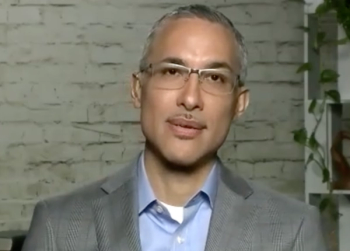
The chief medical officer of Notable spoke with us about the company, and why hospitals and healthcare companies are going to have to move some tasks away from people.

The chief medical officer of Notable spoke with us about the company, and why hospitals and healthcare companies are going to have to move some tasks away from people.

After lagging behind other industries for years, health organizations are turning more to technology. However, leaders can do more to help patients and employees.

Children’s hospitals are packed with patients, and many doctors have been pushed to their limits. Healthcare leaders must recognize and acknowledge the stress on physicians and ask them what they need.

There are practical ways to apply digital care solutions to improve health for all.

Most hospitals aren’t screening for fentanyl in emergency departments, a recent study found. Advocates are pushing for more testing.

Researchers found an automated, 30-day text messaging program engaged patients and lowered their odds of needing acute care services.

Researchers found racial disparities are evident in the treatment of patients for advanced heart failure. The gap could be due to racial bias, they said.

A coalition of New York health officials and hospitals is pushing to change screening tools that are hurting patients from minority groups.

Breast cancer screenings have yet to return to pre-pandemic levels, and providers are seeing some patients with more advanced cancers.

At a health conference, executives unveiled new solutions and sent a message that healthcare is the company’s focus.

The new system has been plagued with problems and drawn the ire of lawmakers. The Department of Veterans Affairs says it’s working with Oracle Cerner to resolve the issues.

Intermountain Healthcare hires a chief nursing executive, the University of Texas at Austin announced a medical dean, and other leaders take new posts.

More than 130 organizations signed a letter asking the president to do more to help children. Emergency departments are treating more young people for suicide attempts.

Implementing digital health solutions can help hospitals attract and retain more patients amid increasing competition from industry disruptors.

Intentionally designed programs can remove barriers and help organizations win talent.

The Pennsylvania system is aiming to improve health in the Plain communities. WellSpan’s leaders talked with Chief Healthcare Executive about the challenges and lessons of working with the Amish.

The Pennsylvania system sets tangible goals and is seeing progress. WellSpan’s Mike Seim spoke with Chief Healthcare Executive about closing disparities.

Hospitals and health systems can develop digital and mobile strategies that meet their unique needs.

The Morehouse School of Medicine examined the toll of inequities. Daniel Dawes of the Satcher Health Leadership Institute spoke with Chief Healthcare Executive about the need for equity in behavioral health.

The president hosted a conference on nutrition and health. Some health groups are investing money and resources to expand access to food and training to physicians.

A report by athenahealth finds a gender gap in the use of virtual care. Jessica Sweeney-Platt of athenahealth talked with Chief Healthcare Executive about telemedicine.

Consumers are saying they want more involvement with their providers as they seek to manage their health. That’s a key takeaway from a new report by Kaufman Hall.

A panel of physicians and leaders in the field expressed enthusiasm for AI’s possible benefits for patients. They also said solutions must be designed with health equity in mind.

The federal government has set an Oct. 6 deadline to comply with a rule designed to improve the spread of health data. The American Hospital Association, America’s Essential Hospitals and others say they need more time.

Health groups say requests for authorization are delaying patient care and adding stress to overworked staff. Advocates say a bill to revamp the process for Medicare Advantage plans would help millions.